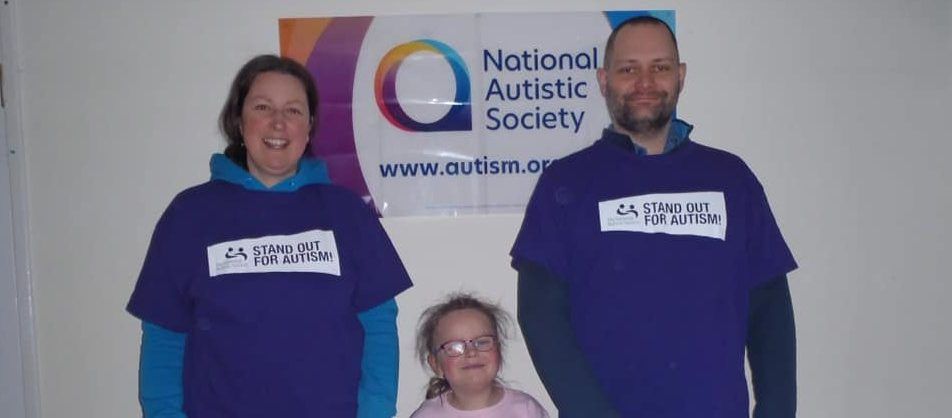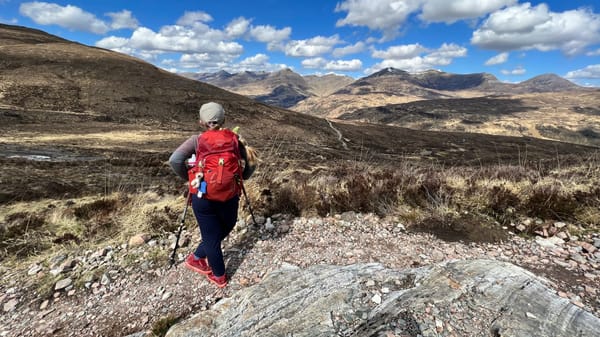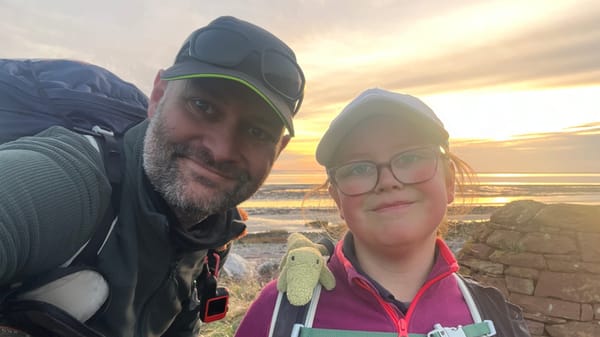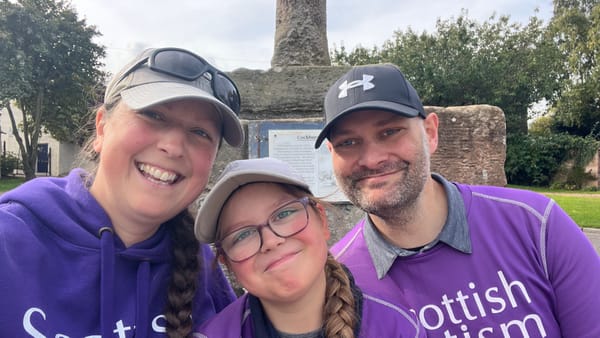Autism

As you will have gathered by now, our walk from Dunnet Head to Lizard is to raise awareness of autism. According to the National Autistic Society, “Autism is a lifelong developmental disability which affects how people communicate and interact with the world. One in a hundred people are on the autistic spectrum and there are more than 700,000 autistic adults and children in the UK”. This page is to help people understand autism and will feature interesting articles, videos, ideas and real life accounts from people on how autism affects them on a daily basis.
If you would like to have your story about autism featured here (either answering questions or writing your own account) then please email Karen at wordtothewisecopy@gmail.com
Name: Valentina Olea
Gender: Female
Age:24
When did you get your diagnosis?
I received my diagnosis in 2020, but now I am making a diagnosis with a female autism specialist
How does autism affect you on a daily basis?
It influences me in everything, from the moment I get up I need everything to go according to what I plan. Many times the mood does not accompany me, when breakfast always has to be a food that suits me, I do not like uncertainty or surprises , if I could eat cereal I would do it for months. When I’m on my way to university, I always have headphones on due to my hypersensitivity to sound, I just listen to music that I like. Plus I try to stay away from people, why do I hate that touch me without permission, it influences me in social relationships. I don’t know how to bring up a topic of conversation if it’s something I like and I don’t usually look them in the eye. I feel the other person’s emotions too much and it hurts.
What stereotypes are you aware of around autism?
Well, those that exist on television, a white man who is a genius in his area, dresses strangely and tends to exaggerate his features, or also a small boy who does not speak and who is generally obsessed with dinosaurs. Another is that the mother always tends to be the “voice” of the person with autism, since that person is perfectly capable of expressing their concerns in their own way. People believe that autism has to have something physically visible so that it can be identified, which is not true , therefore they impose many things of the neurotypical world such as the symbol of a puzzle, the color blue, the degrees of autism, that one be high-functioning and low-functioning according to the criteria of people and how useful this is for them, etc.
Do you feel like it has stopped you from doing some things you would like to do?
No, I am perfectly capable of doing everything that neurotypical people do. Doing it differently and at my speed is something else, but I do not consider myself more or less capable of doing normal things.
Have you overcome obstacles to do something/achieve something you really wanted? (this can be anything big or small)
In fact, I have always been described as a strange person, that I am not capable of doing normal things.
I am always told that I am not capable of going to university, but I am studying sociology, also personal things such as getting a job , being able to take a bath, have a friend, be able to talk to another person, laugh, not cry in 1 week, those things that make me feel fulfilled.
Do people act differently around you when they find out you’re autistic?
Yes, since I received the diagnosis my own mother, my friend, everyone around me told me to change too much when I found out about my autism (in a negative way) and I don’t agree at all. I feel like I’m the same person as always, only more liberated and certain of who I am, an identity that I always look for. When I tell other people (that I don’t know) about my autism I always notice that they treat me in a “special” way or if I wasn’t mentally well, I still see ignorance and intolerance so I tend to keep quiet about who I am until I don’t trust the person enough.
Any other info/comments/things you’d like to share about your experience?
I like that people want to know more about autism from official sources and above all with people who are autistic, there is nothing better than knowing about this topic with people who are, because many people tend to misinterpret information from people who has no idea and says things that are false or take advantage of it with the typical lies (vaccines cause autism, methods to heal, miraculous medicine, etc.) why there really is nothing to heal, we are like that and we should be proud.
Diagnosis in adults is not easy and I really like it when it is detected when the person is still a child, many things are avoided in the future. I feel that there is still no visibility of us in a correct way, there are autistic people as children, adolescents, adults and even the most forgotten, the elderly, because this is for life.
My diagnosis was hard, it came with a huge collapse that if it was not stopped in time I would have committed suicide, since I did not understand why I was like “weird”, I am still in the process of healing everything that having this diagnosis entails, despite It’s been 2 years since I received it, I still have bad days, that’s why family support is essential.
Autistic people are capable of having our own opinion, even when many cannot speak, we do not need spokespersons for our families (generally mothers) and for videos to be uploaded to social networks when we have a collapse to receive pity and likes, there are other ways of visibility.
Names: John & David (Told from parent’s perspective)
Gender: Male
Ages: 12 & 8
When did you get your diagnosis?
John – diagnosis was around 2016 (aged almost 7) David – diagnosis was around 2018 (aged almost 4)
Extra info:
Parents are married, ages 35 and 38.
Family history of autism on mother’s side.
Healthy pregnancies but both children had to be resuscitated at birth
How does autism affect you on a daily basis?
We have to be as relaxed as possible, we await emotional outbursts for what seems like small things, but we are aware that these small things are not the actual problem. It is a build up of several small things that we may have not noticed. Usually, it is a sensory overload. New faces, new places, loud noises, lots of background noise such as the TV on as well as people chatting and the dog barking etc. can all begin the buildup. This then triggers outbursts and things like fluffy cushions and smells from food cooking can become unbearable.
What stereotypes are you aware of around autism?
We hear a lot of eye rolling or smirking as whenever we explain ourselves, that it is an excuse for whatever.
‘Everyone has autism these days’,
‘he doesn’t look autistic’,
‘my friend’s son is much worse’,
‘is he really naughty then?’,
‘I bet he’s hard work’,
‘Has it come from your family or his?’
Do you feel like it has stopped you from doing some things you would like to do?
We will avoid going to other people houses at times because we can not control the environment. If we as parents know what the place is like beforehand then we can make a better judgement. If the people we see know our boys then we do not feel as worried. We have a lot of days cut short or we plan heavily. We explain to the boys what is going to happen and keep it simple.
EG: We will leave at 9am and drive for 30 minutes, we will have food and drink, stay chatting to X for a while and there will be X for you to do. We will also take phones/tablets etc. We will be home by 2pm and you can do what you want after that
Are there things you practice to help you cope with your children’s autism?
Not really. The fact that myself and my husband are on the same page and are team about it all is the only thing that helps. Planning as much as possible and communicating with the boys as much as possible, keeping instructions and information short unless they ask for more information.
Have you overcome obstacles to do something/achieve something you really wanted? (this can be anything big or small)
John was discharged from SALT in 2019 and has an amazing sense of humor with some sarcasm, he is hilarious. Kind and caring also.He has started high school last year and has coped brilliantly compared to early years at primary school.
David was unable to communicate very well until he was almost 4 but now does not stop talking, that was huge. His speech is ok but he is still under SALT now as his communication is not clear in what he is trying to explain but he is hugely affectionate and caring.
[SALT – Speech and language therapists]
Do people act differently around you when they find out your children are autistic?
We are careful of who we spend time with and we have had to put a lot of work in to get the boys to be more sociable where needed. It took a lot of effort to get grandparents to understand the situation and get on board with us and what we do as parents. We still have battles at times but generally ok now.
Any other info/comments/things you’d like to share about your experience?
There is a lack of support, a lack of help within school including poor funding. Educationally no one is that interested. If your child is crying everyday, it doesn’t matter so long as they are not flipping tables and disrupting the class then they are fine.
There is an attitude of a diagnosis and then off you go. For people living in Neston we are expected to go to Chester/Frodsham/nantwhich etc for 1 hour fun sessions. This is not going to happen as it is more of an upheaval. You are pretty much on your own and pretty much judged by everyone you speak to.
Without my husband I really do feel I would not have coped in the earlier years and that is the case for many people. We just have done what we can for our children and our family. School holidays are pretty hard and if we didn’t have the grandparents (my mum and in-laws) we would not be able to manage. One of us could not work because afterschool clubs and childminders are out of the question.




